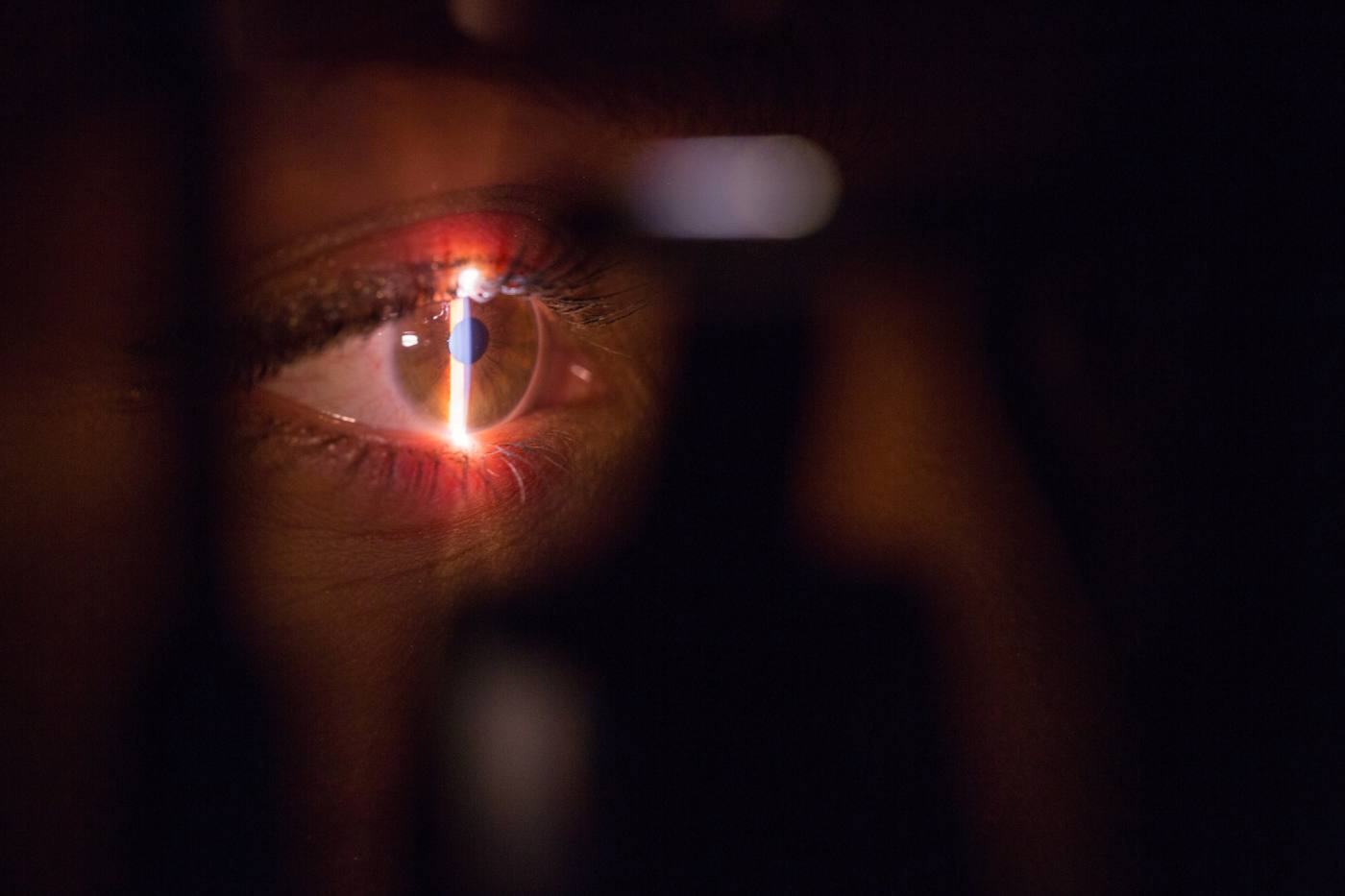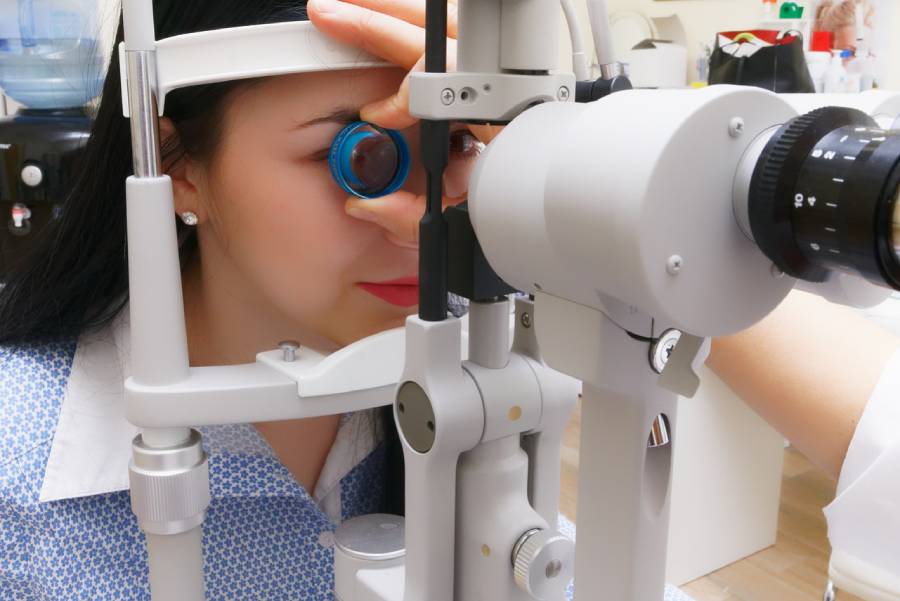Diabetic Retinopathy Evaluations
Diabetic retinopathy is best diagnosed with a comprehensive dilated eye exam. For this exam, drops placed in your eyes widen (dilate) your pupils to allow your doctor a better view inside your eyes. The drops can cause your close vision to blur until they wear off, several hours later. During the exam, Dr. Nash will look for abnormalities in the inside and outside parts of your eyes.


Preparing For Your Appointment
The American Diabetes Association (ADA) recommends that people with type 1 diabetes have an eye exam within five years of being diagnosed. If you have type 2 diabetes, the ADA advises getting your initial eye exam at the time of your diagnosis.
If there’s no evidence of retinopathy on your initial exam, the ADA recommends that people with diabetes get dilated and comprehensive eye exams at least every two years. If you have any level of retinopathy, you’ll need eye exams at least annually. Ask your eye doctor what he or she recommends.
The ADA recommends that women with diabetes have an eye exam before becoming pregnant or during the first trimester of pregnancy, and be closely followed during the pregnancy and up to one year after giving birth. Pregnancy can sometimes cause diabetic retinopathy to develop or worsen.
What you can do…
- Write a brief summary of your diabetes history, including when you were diagnosed; medications you have taken for diabetes, now and in the past; recent average blood sugar levels; and your last few hemoglobin A1C readings, if you know them.
- List all medications, vitamins and other supplements you take, including dosages.
- List your symptoms, if any. Include those that may seem unrelated to your eyes.
- Ask a family member or friend to go with you, if possible. Someone who accompanies you can help remember the information you receive. Also, because your eyes will be dilated, a companion can drive you home.
- List questions for your doctor.
Questions For The Doctor…
For diabetic retinopathy, questions to ask your doctor include:
- How is diabetes affecting my vision?
- Do I need other tests?
- Is this condition temporary or long-lasting?
- What treatments are available, and which do you recommend?
- What side effects might I expect from treatment?
- I have other health conditions. How can I best manage them together?
- If I control my blood sugar, will my eye symptoms improve?
- What do my blood sugar goals need to be to protect my eyes?
- Can you recommend services for people with visual impairment?
What to expect from your doctor
Your doctor is likely to ask you questions, including:
- Do you have eye symptoms, such as blurred vision or floaters?
- How long have you had symptoms?
- In general, how well are you controlling your diabetes?
- What was your last hemoglobin A1C?
- Do you have other health conditions, such as high blood pressure or high cholesterol?
- Have you had eye surgery?

Our Office
Email Us
Hours
Tuesday: 8am-12pm & 1pm-5pm
Wednesday: 8am-12pm & 1pm-5pm
Thursday: Closed
Friday: 8am-12pm & 1pm-5pm
Saturday: 8am - 1pm
Sunday: Closed
We are closed for lunch each business day from 12pm-1pm (except Saturday)
